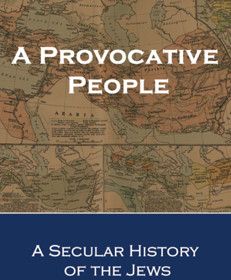The first significant archeological signs of urbanization and power appear in the reign of Omri (884-873 BCE) and his son Ahab (873-852 BCE). Omri transformed Israel into a credible military power. Under Omri, the backward northern highlands became a center of military and political intimidation. But the Jewish writers and editors of the Bible viewed him with scorn. They detested his political policies, especially his alliance with the Phoenicians. They also abhorred his toleration of the religious practices of the Canaanites, who were almost one-half of Israel’s inhabitants. That Omri and Ahab vastly expanded the nation’s borders, that they enhanced the economy with their two-way trade between Israel and Phoenicia, that they repelled both the Arameans and the Assyrians—all of that was irrelevant to the Yahweh-worshiping Jews. Ahab had dared to marry the Phoenician princess Jezebel and to subsidize the Phoenician Baal cult. His impiety cancelled out all political and economic achievements. The Biblical lens distorted the importance of the secular work of the House of Omri. The marriage of a foreign princess was of great concern to later editors of the Bible (see Solomon). It was of no concern to most of the people of Israel, who were used to mixed societies and religious toleration.
The Phoenicians were coastal Canaanites who chose manufacturing trade and commerce as their specialty. Shrewd and competent businessmen, they turned the Mediterranean Sea into a Phoenician lake. Israel became their agricultural hinterland, providing olives, wheat and wine. If you can recover from your antipathy to Baal, the alliance between Israel and the Canaanite Phoenicians was made in heaven.

